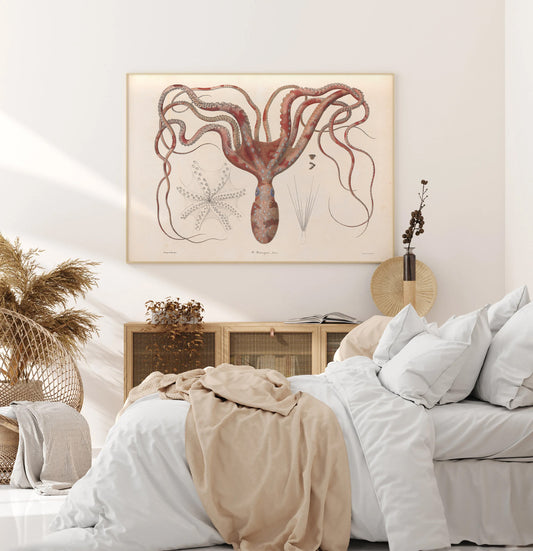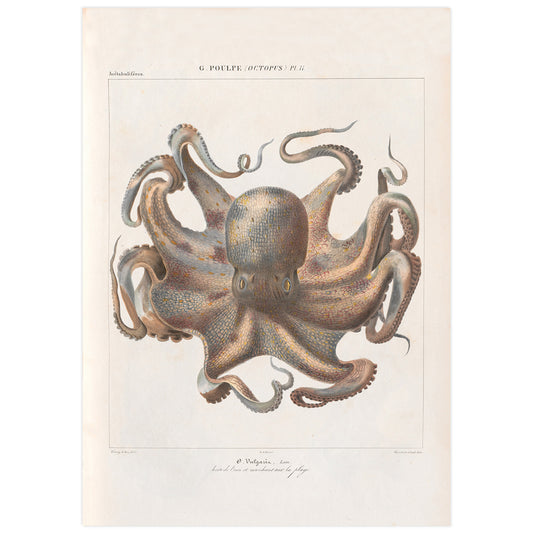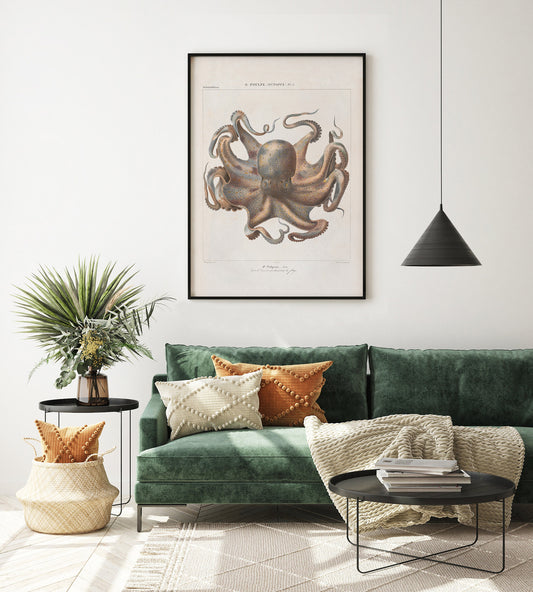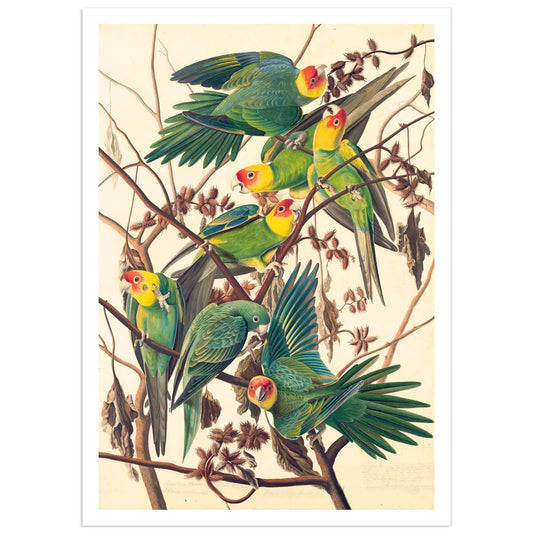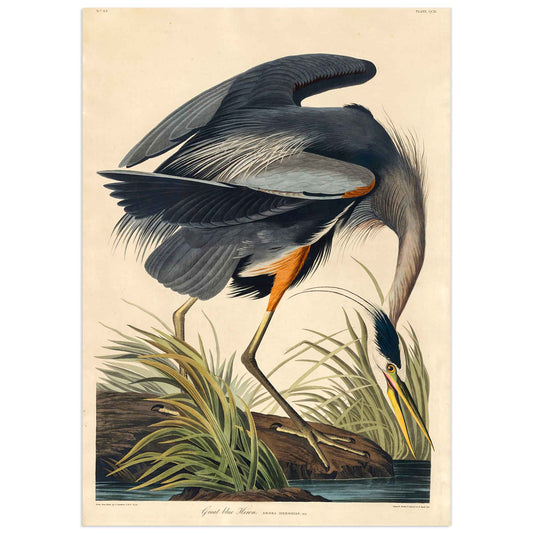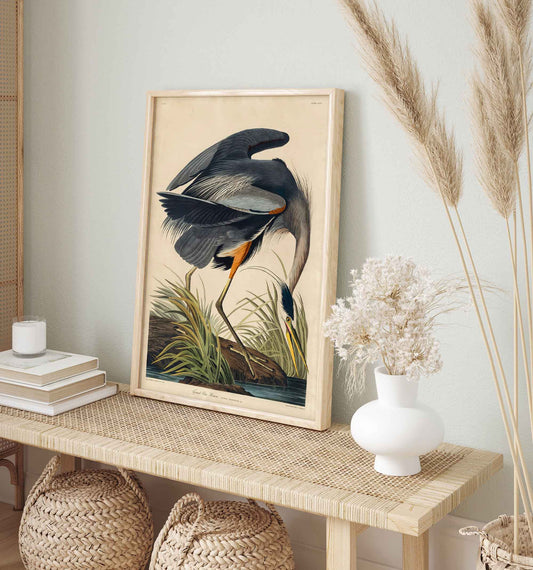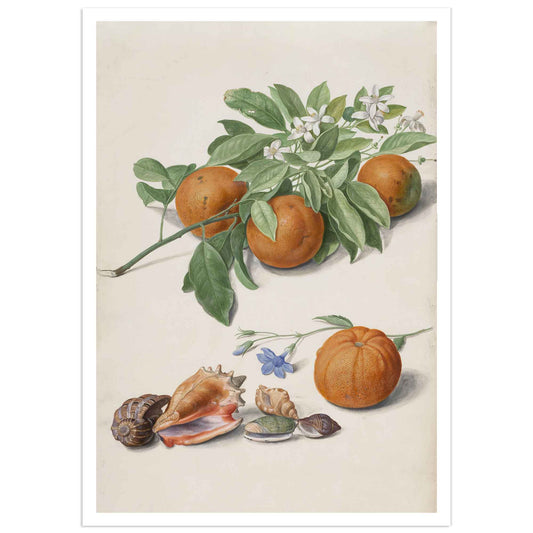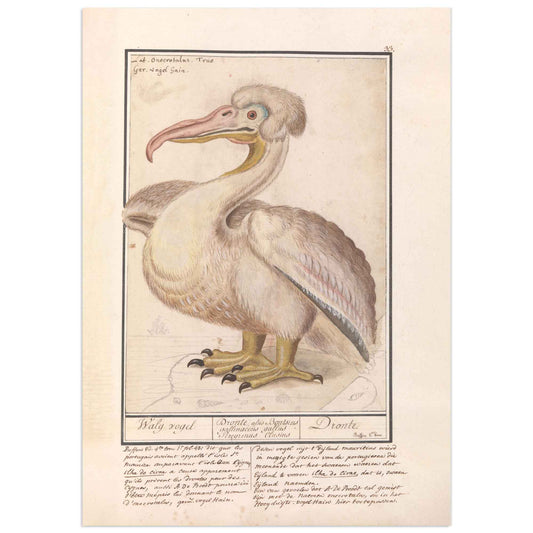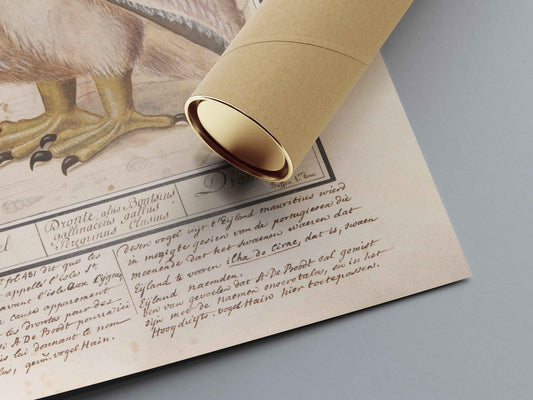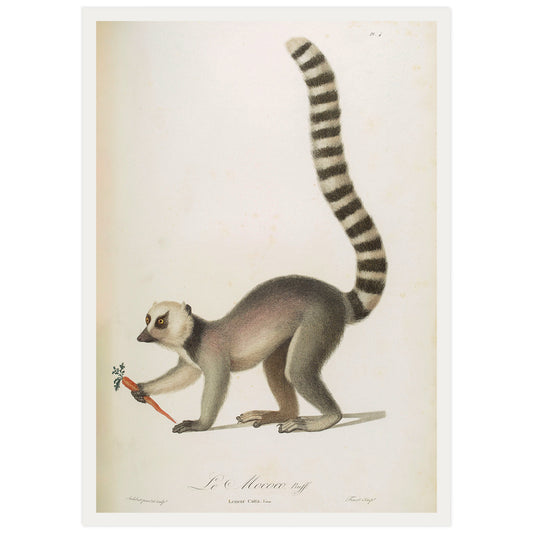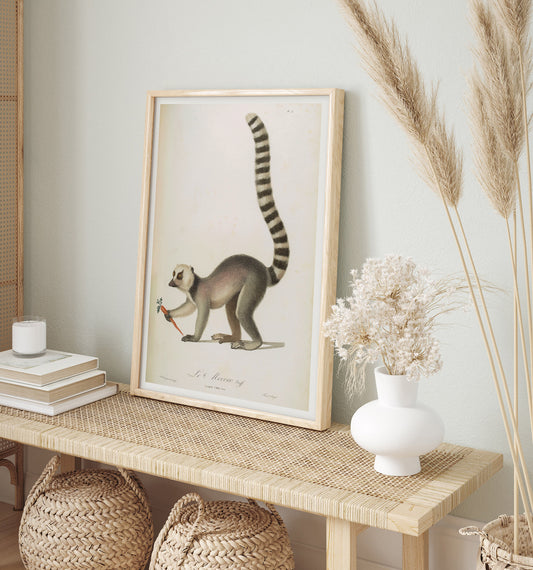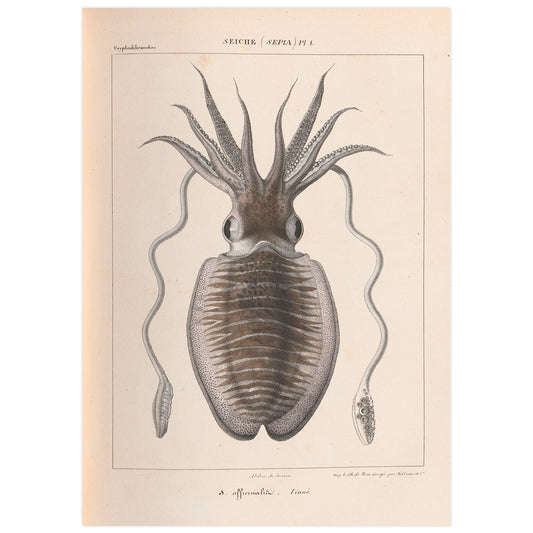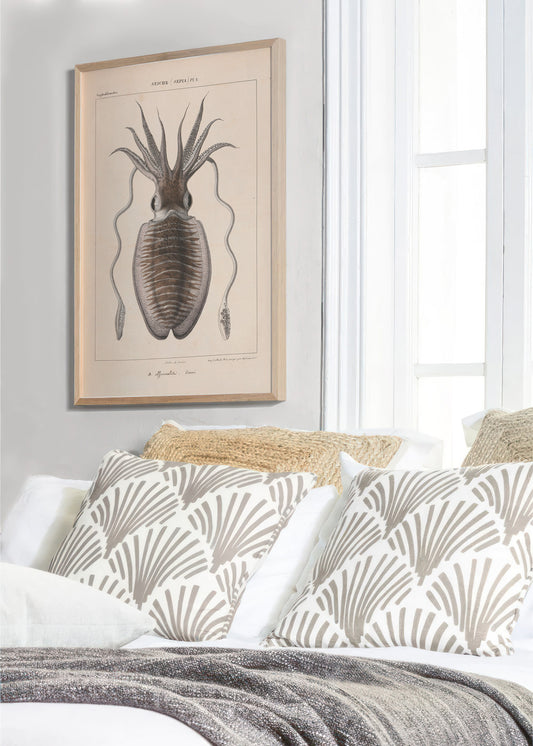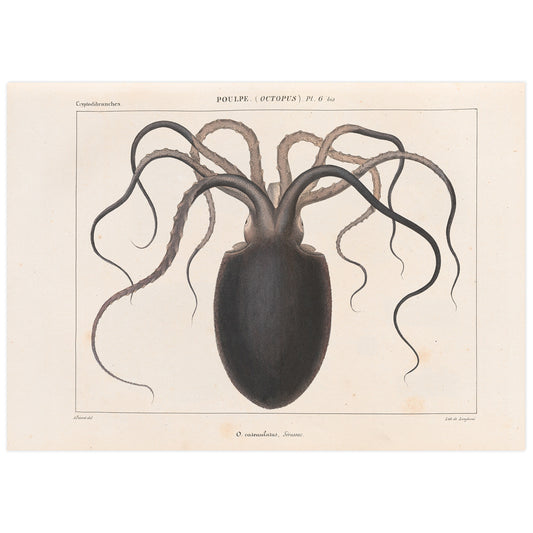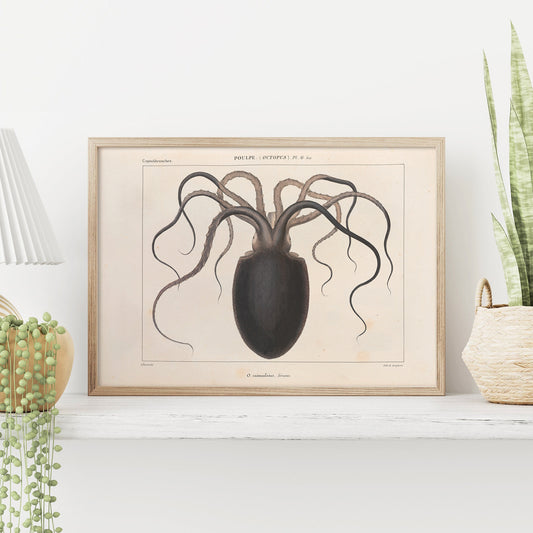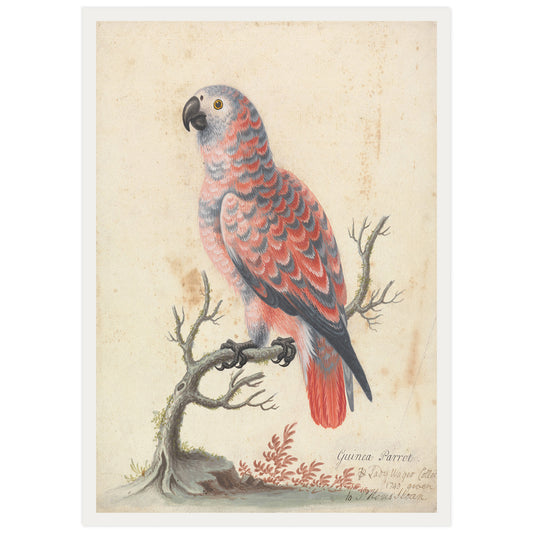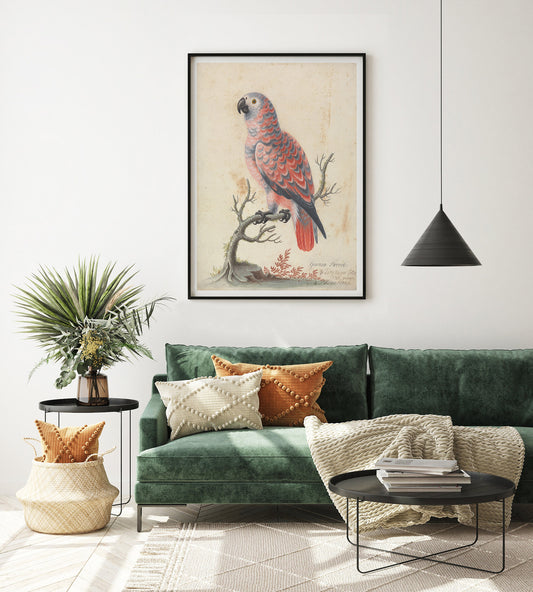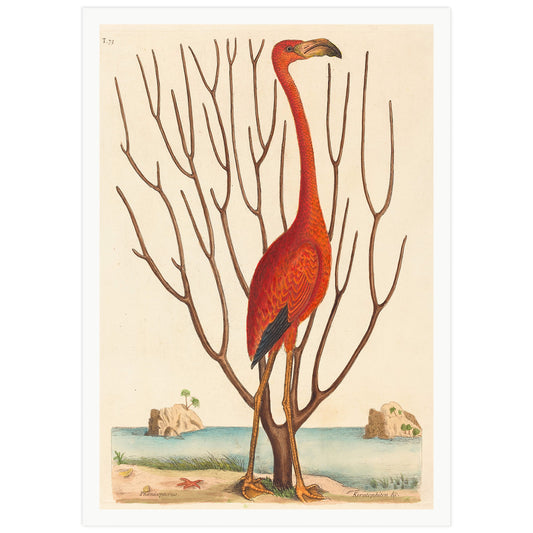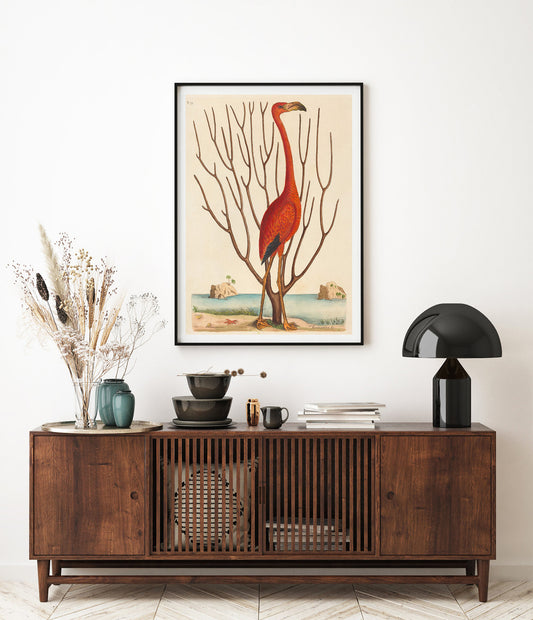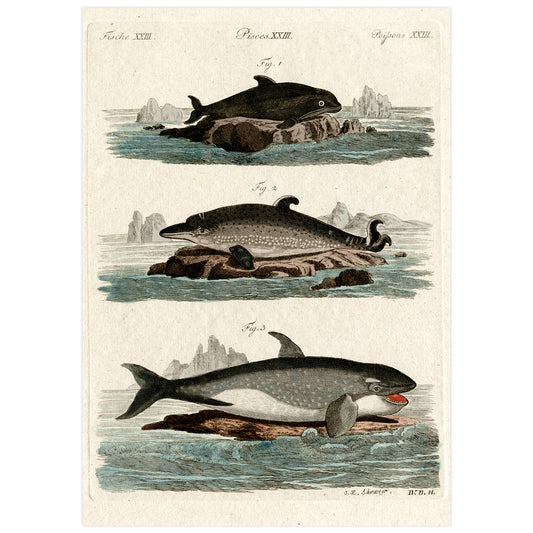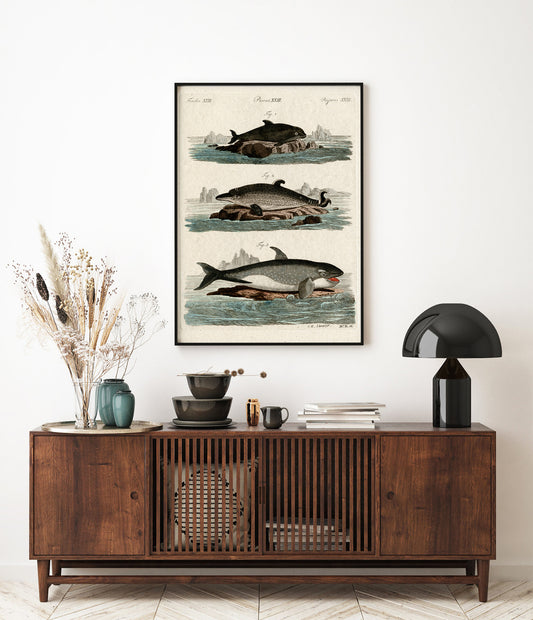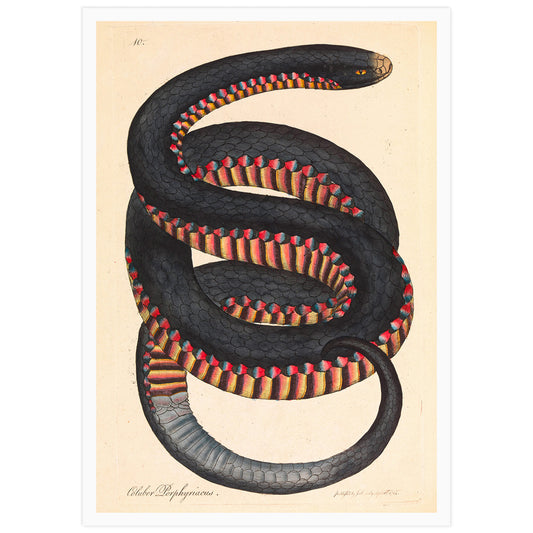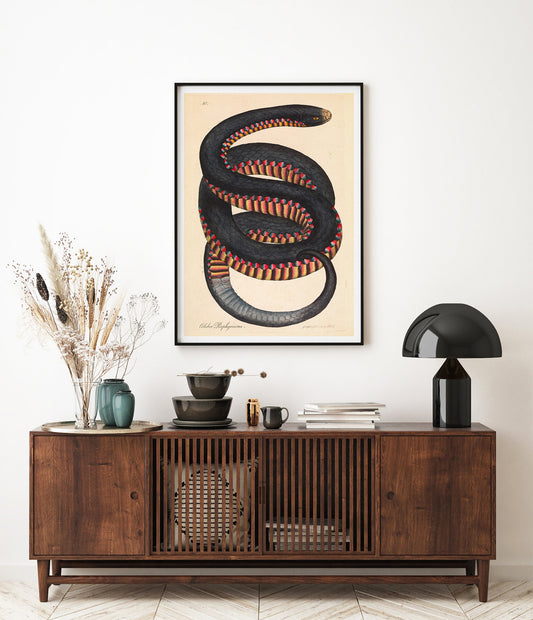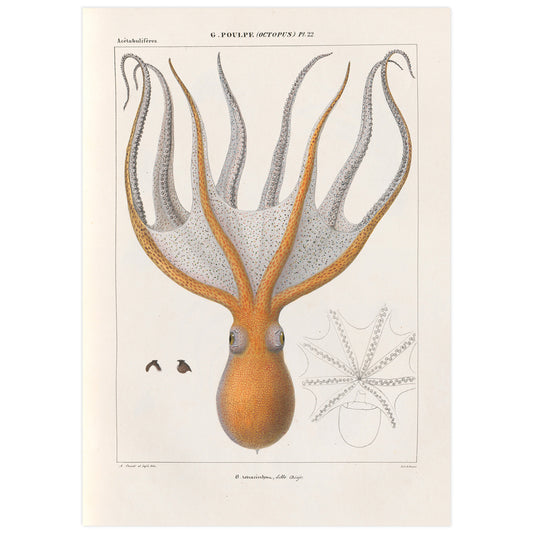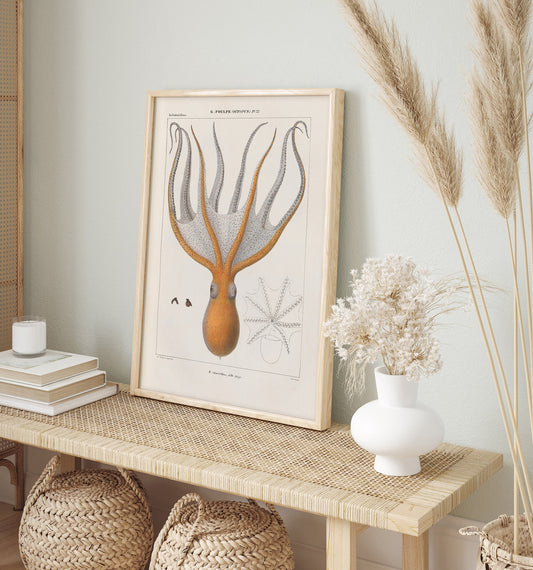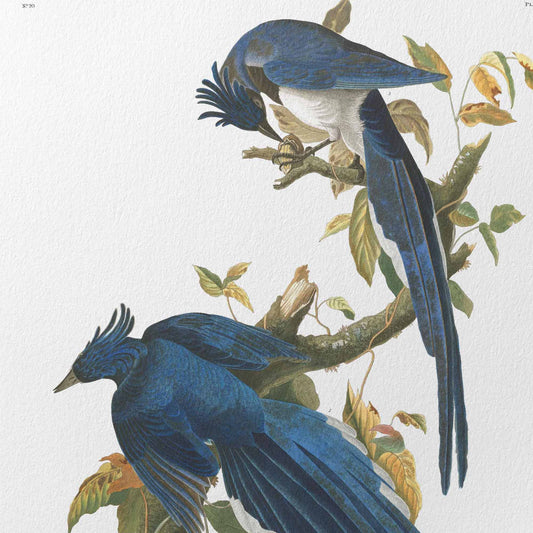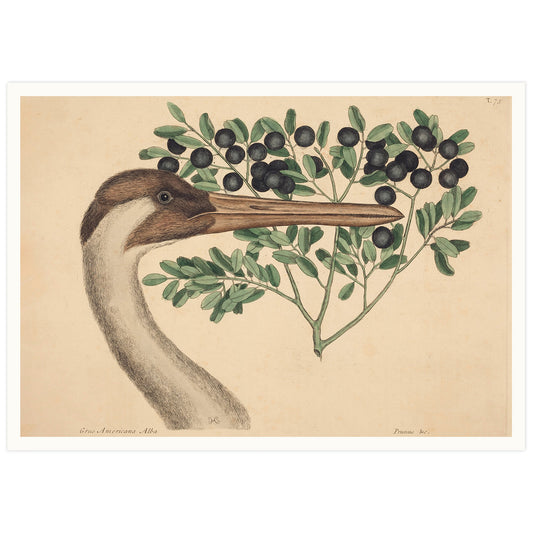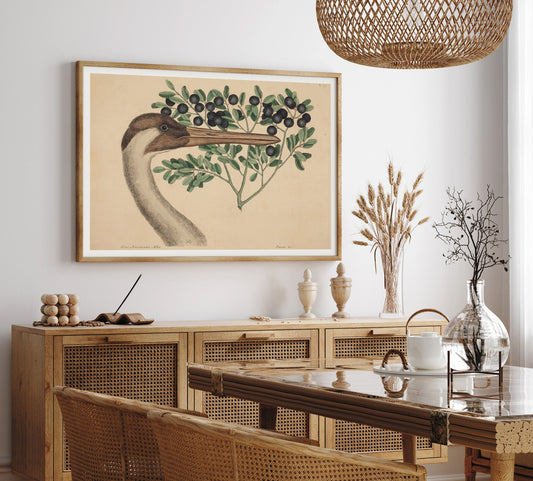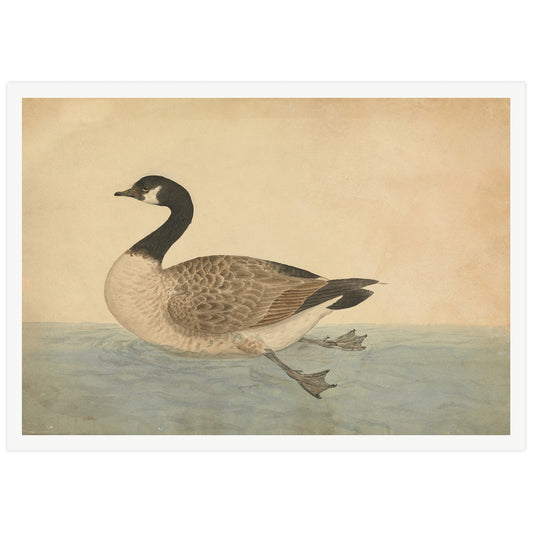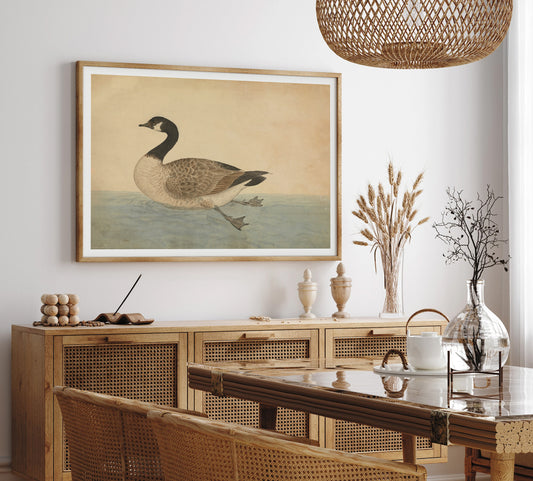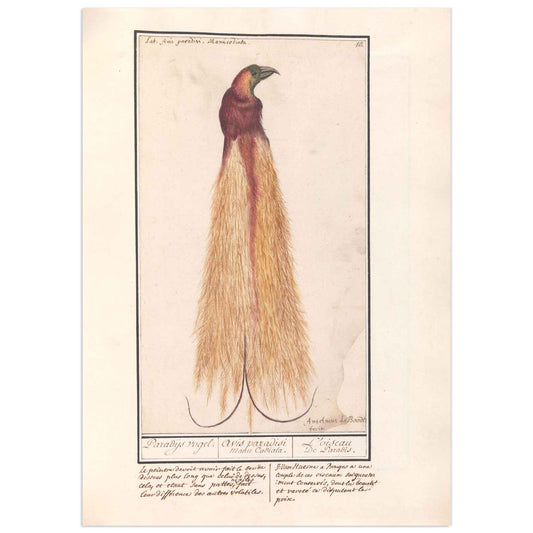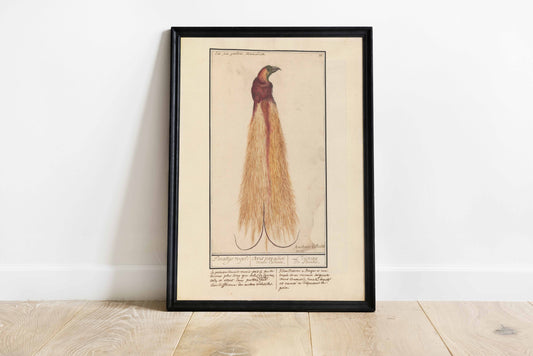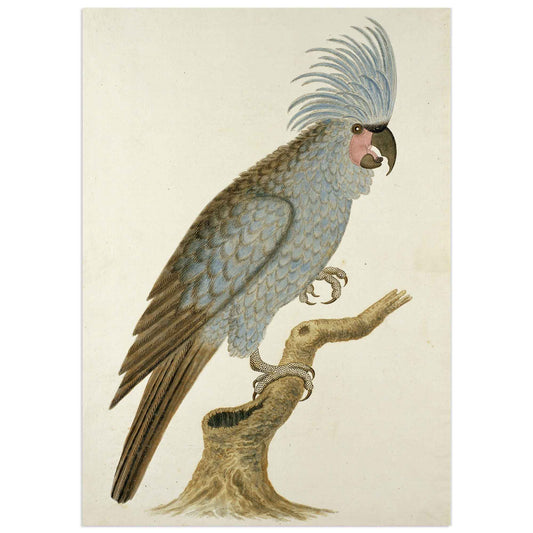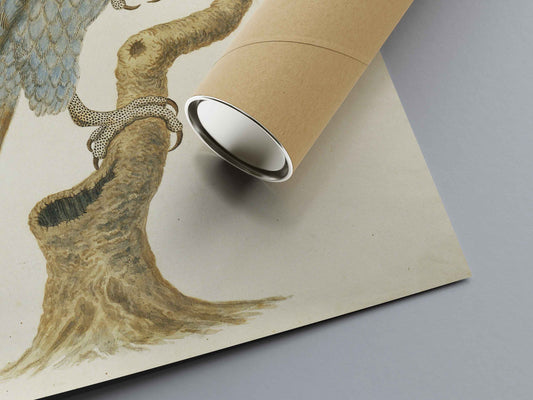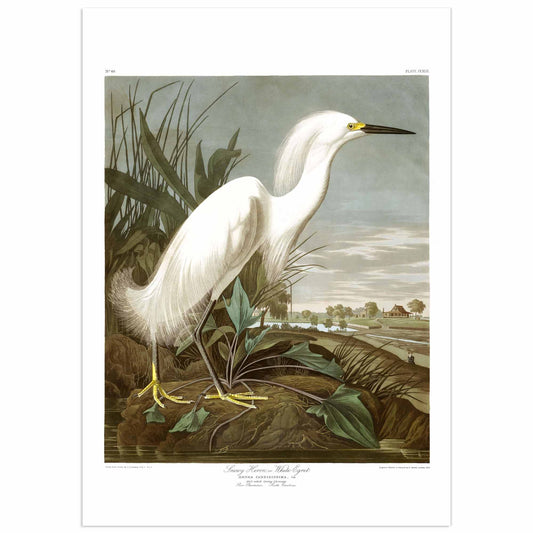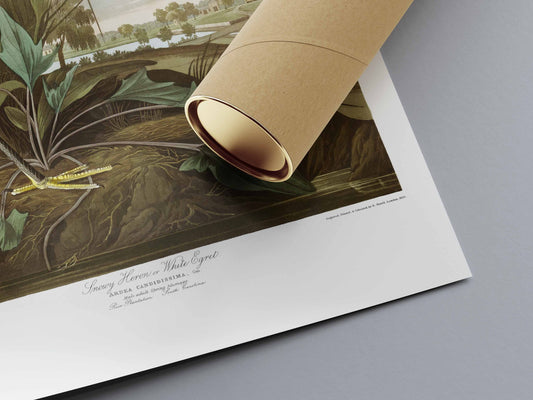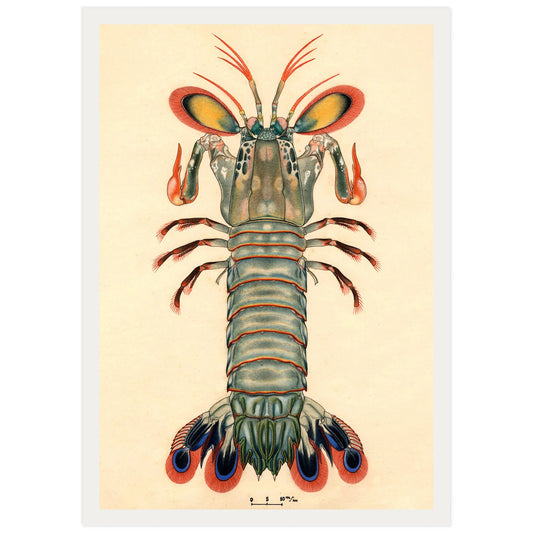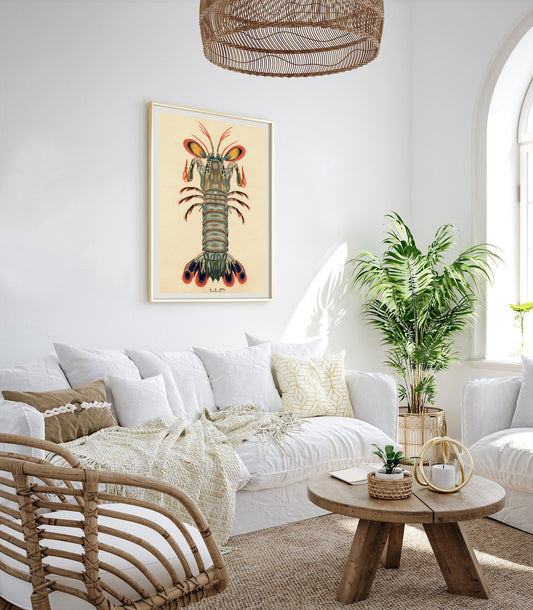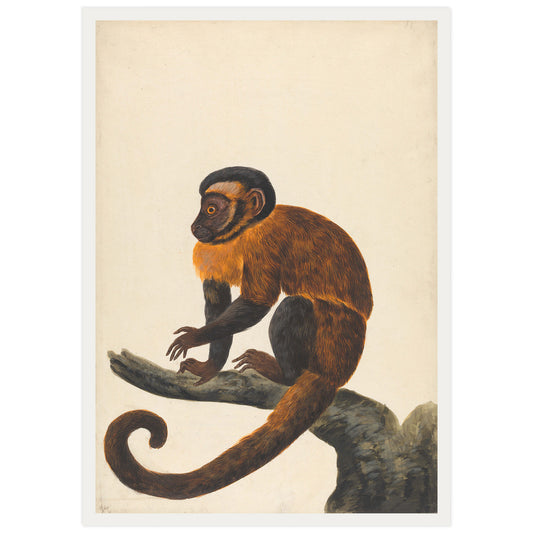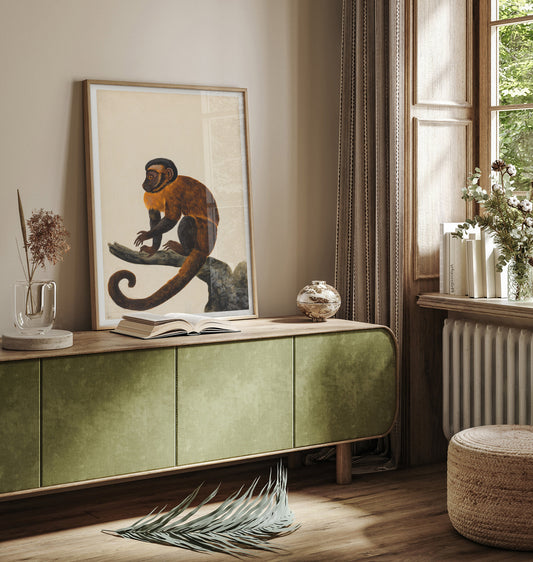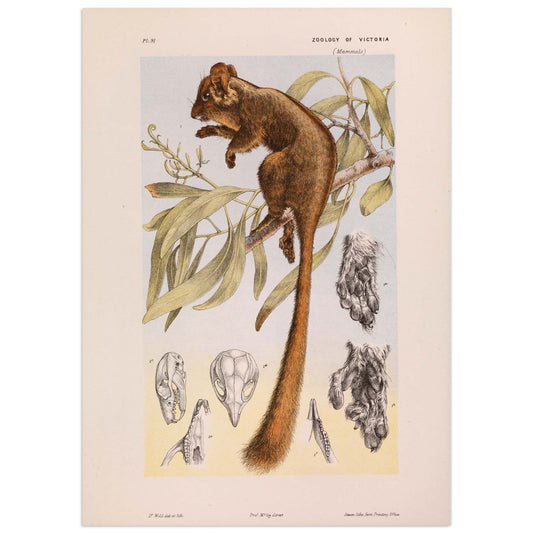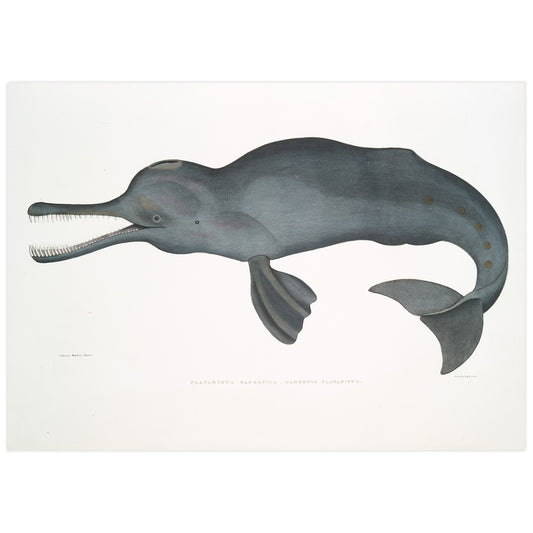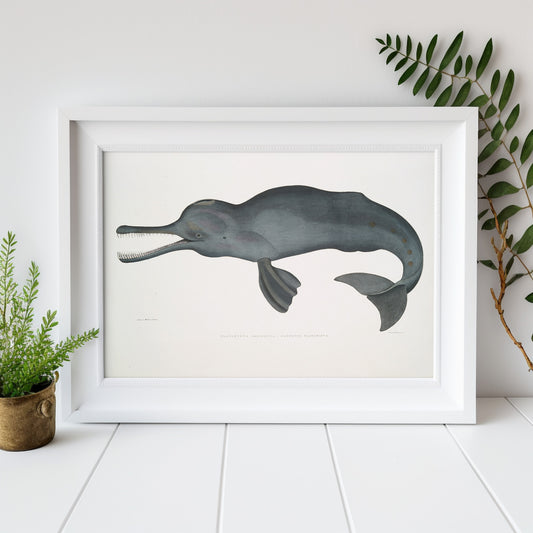Collection: Natural History Plates
-
Vintage french illustration of an octopus
Vendor:printOdysseyRegular price From $55.00 CADRegular priceUnit price / per$0.00 CADSale price From $55.00 CAD -
Vintage French illustration of an octopus
Vendor:Wallango5.0 / 5.0
(1) 1 total reviews
Regular price From $55.00 CADRegular priceUnit price / per$0.00 CADSale price From $55.00 CAD -
Carolina Parakeets, Audubon poster
Vendor:Wallango5.0 / 5.0
(6) 6 total reviews
Regular price From $46.00 CADRegular priceUnit price / per -
John James Audubon poster - Great Blue Heron
Vendor:Wallango5.0 / 5.0
(2) 2 total reviews
Regular price From $46.00 CADRegular priceUnit price / per -
Oranges, flax flowers and shells - Johann Walter poster
Vendor:WallangoRegular price From $46.00 CADRegular priceUnit price / per -
Dalmatian Pelican by Anselmus Boëtius de Boodt
Vendor:WallangoRegular price From $55.00 CADRegular priceUnit price / per -
Vintage French illustration of a Lemur
Vendor:WallangoRegular price From $55.00 CADRegular priceUnit price / per$0.00 CADSale price From $55.00 CAD -
Vintage french illustration of a Cuttlefish
Vendor:WallangoRegular price From $55.00 CADRegular priceUnit price / per -
Vintage octopus illustration
Vendor:printOdysseyRegular price From $55.00 CADRegular priceUnit price / per$0.00 CADSale price From $55.00 CAD -
Poster of an 18th century watercolor of a Guinea Parrot
Vendor:WallangoRegular price From $46.00 CADRegular priceUnit price / per$0.00 CADSale price From $46.00 CAD -
The Flamingo (Phoenicopterus ruber), Mark Catesby
Vendor:WallangoRegular price From $55.00 CADRegular priceUnit price / per$0.00 CADSale price From $55.00 CAD -
Fische, Pisces, Poissons XXIII, by Jacob Xaver Schmuzer
Vendor:WallangoRegular price From $46.00 CADRegular priceUnit price / per$0.00 CADSale price From $46.00 CAD -
Crimson-sided Snake, Coluber porphyriacus by James Sowerby
Vendor:WallangoRegular price From $46.00 CADRegular priceUnit price / per$0.00 CADSale price From $46.00 CAD -
Vintage french illustration of an octopus
Vendor:WallangoRegular price From $55.00 CADRegular priceUnit price / per -
Columbia Jay Print - Audubon Birds of America Plate 96 - Fine Art Giclée on Hahnemühle Paper
Vendor:WallangoRegular price From $82.00 CADRegular priceUnit price / per -
The Hooping Crane (Ardea Americana), by Mark Catesby
Vendor:WallangoRegular price From $55.00 CADRegular priceUnit price / per$0.00 CADSale price From $55.00 CAD -
The Canada goose - James Sowerby
Vendor:WallangoRegular price From $46.00 CADRegular priceUnit price / per -
Bird of Paradise by Anselmus Boëtius de Boodt
Vendor:WallangoRegular price From $46.00 CADRegular priceUnit price / per -
Palm Cockatoo by Jacob Robert Gordon
Vendor:WallangoRegular price From $55.00 CADRegular priceUnit price / per -
Snowy Heron Poster from The Birds of America
Vendor:WallangoRegular price From $55.00 CADRegular priceUnit price / per -
Peacock Mantis Shrimp
Vendor:WallangoRegular price From $46.00 CADRegular priceUnit price / per -
Capuchin monkey
Vendor:WallangoRegular price From $46.00 CADRegular priceUnit price / per$0.00 CADSale price From $46.00 CAD -
Leadbeater's Possum
Vendor:WallangoRegular price From $46.00 CADRegular priceUnit price / per$0.00 CADSale price From $46.00 CAD -
South asian river dolphin (platanista) illustration by John Edward Gray
Vendor:WallangoRegular price From $55.00 CADRegular priceUnit price / per$0.00 CADSale price From $55.00 CAD
Naturalist plates
Naturalist plates refer to illustrations based on nature produced by artists as part of their scientific knowledge of species.
A brief history of naturalist illustrations
Naturalist illustrations began to appear with the advent of natural history in the 18th century.
In a spirit combining plastic art and scientific rigour, artists began to offer life drawings of animal and plant species. A close link was forged between disciplines such as zoology, mineralogy and botany and the techniques of artistic representation. Natural history books describing species were illustrated with numerous drawings or engravings, often printed full-page: the famous Naturalist plates.
The study of the diversity of living organisms by scientists such as Carl von Linné, Georges-Louis Leclerc de Buffon, Jean-Baptiste de Lamarck and Charles Darwin owed much to the work of illustrators whose names have sometimes been forgotten.
The great names of naturalist illustration
It would be difficult to talk about all the marvels that can be discovered when you are passionate about scientific illustration. I'm going to try to highlight a few of the big names, which I hope will inspire you to do your own research. In France, we have had some leading naturalist illustrators.
- Mark Catesby (1683-1749): English naturalist who documented the flora and fauna of colonial America in his acclaimed book, "The Natural History of Carolina, Florida and the Bahamas Islands."
- - Pierre-Joseph Redouté (1759-1840) : A French botanical artist known as "The Raphael of Flowers" for his incredibly detailed and lifelike illustrations.
- - John James Audubon (1785-1851): An American ornithologist and artist whose monumental work, "The Birds of America," is a masterpiece of natural history
- - Ernst Haeckel (1834-1919): German zoologist and artist who popularized Darwinism and championed a complex "tree of life
- - Adolphe Millot (1857-1921) : French artist and entomologist who bridged the gap between art and science with his detailed illustrations of nature.
What are the main types of naturalistic illustration?
The different illustrations of natural history correspond to the different disciplines of scientific study that exist in science, such as :
- Botanical illustrations
- Mineralogy illustrations
- Zoological illustrations
What types of nature posters are available?
There are different types of naturalistic illustration, each with a different technique: watercolor, print or drawing. Most illustrations for sale are period or contemporary reproductions.
Where to buy natural history posters
Original plates or period reproductions of natural history illustrations can be purchased in specialized online stores, at auctions or at flea markets. Some bookshops also offer illustrated books in beautiful original editions with full-page illustrations.
At Wallango.com we sell modern reproductions with excellent value for money. We specialize in high-definition printing and our posters are printed on top-of-the-range paper (250 gr/m2). We take great care to ensure that every detail is reproduced and that the colors are as faithful as possible to the original images. Our digital restoration teams work to this end, guaranteeing you high-quality images.
Our top-selling Natural History posters
Tanacetum flower from a 17th-century French botanical book.
Great Blue Heron by John James Audubon
Small parrots Poster by John James Audubon
Fische, Pisces, Poissons XXIII, by Jacob Xaver Schmuzer
Histoire naturelle générale et particulière des céphalopodes acétabulifères vivants
Using a natural history illustration for decoration
How to decorate in the spirit of the Natural History Museum ?
A natural history poster is an essential decorative object to enhance your walls. Acquiring a faithful reproduction of a natural history plate breathes a special atmosphere into your home :
it's like experiencing the joy you felt as a child when you discovered your country's national natural history museum for the first time, and expressing your sensitivity to the natural world and the immense diversity of species that inhabit it.
Where to position my vintage Natural History poster?
- Location : think about the strategic location that will best showcase your new poster: bedroom, living room or office...
- Format : choosing the right poster format is important. At Wallango, we offer many sizes that correspond to the standard frame sizes found on the market. We strongly recommend that our customers buy a frame that will enhance their poster, but you can also hang it directly on the wall - it's up to you.


